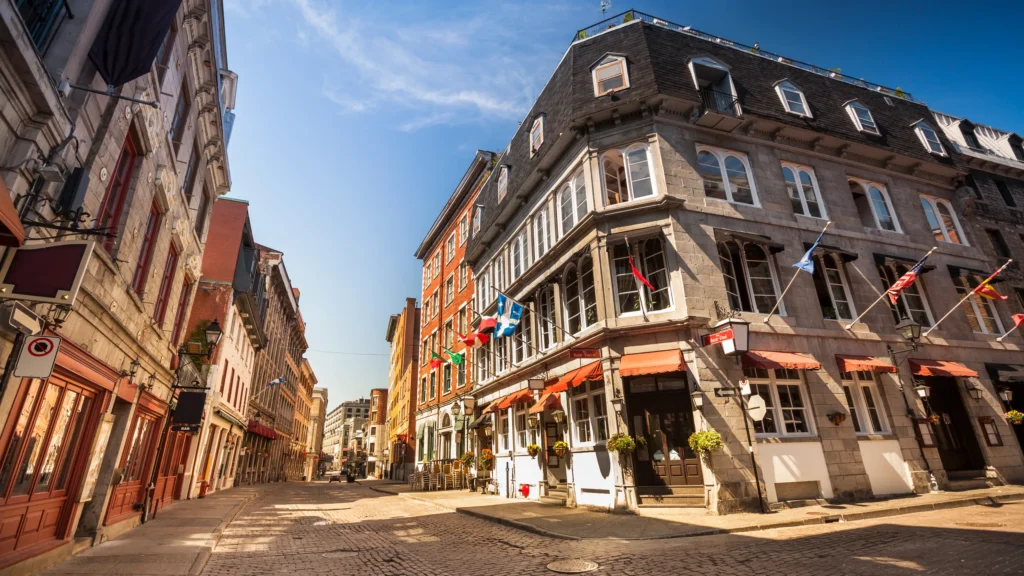In 2023, Canadians faced a daunting challenge in the housing market. Rent prices across the nation soared to unprecedented levels, and the vacancy rate for rental properties plummeted to its lowest point since 1988.
This phenomenon has affected countless renters and sparked concerns among housing experts and policymakers alike.
It’s also the same for the city of Montreal, which experienced a remarkable shift in its housing market, particularly in the realm of rental properties. This year was characterized by a significant increase in rent prices, coupled with an exceptionally low availability of rental units.
So let’s delve into the details of this situation, understand its root causes, and explore its broader implications.
The Tightening Grip of Rental Availability
Montreal, known for its vibrant culture and diverse neighborhoods, found itself grappling with a scarcity of available rental units in 2023.
The vacancy rate, which measures the percentage of all available units in a rental property that are vacant or unoccupied, plummeted to a mere 1.5 percent.
To put this into perspective, this means that out of every 100 rental units, only 1.5 were without tenants. This level of availability was among the lowest the city has seen in decades, making it increasingly difficult for individuals and families to find suitable rental accommodations.
The Upward Spiral of Rent Prices
As the availability of rental units decreased, the cost of renting in Montreal saw a noticeable rise. The average rent for a two-bedroom apartment in the city surged by 7.9 percent, reaching $1,096.
This increase in rent prices reflects the growing demand for housing in the face of limited supply, putting additional financial pressure on renters across the city.
Unraveling the Causes
Several factors contributed to the low vacancy rates and rising rent prices in Montreal:
- Population Growth: Montreal has been experiencing steady population growth, partly due to immigration and the city’s appeal as a destination for students and professionals. This growth has led to an increased demand for housing.
- Shifts in the Housing Market: The challenges faced by potential homebuyers, including high real estate prices and interest rates, have led more people to opt for renting instead of buying. This shift has further intensified the demand for rental units.
- Limited New Construction: Despite some new developments, the construction of new rental properties has not kept pace with the rising demand. This imbalance between supply and demand has been a key driver of the low vacancy rates and high rent prices.
The Impact on Residents
The tight rental market in Montreal has had significant implications for the city’s residents. Many have found it increasingly challenging to secure affordable and suitable housing.
The competition for available units has intensified, leading to situations where renters are forced to compromise on location, quality, or price.
This has been particularly tough for lower-income individuals and families, students, and newcomers to the city, who are often most in need of affordable housing options.
Addressing the Challenge
To alleviate the pressures of the rental market in Montreal, a multi-faceted approach is needed:
- Boosting Housing Construction: One of the most direct ways to address the shortage of rental units is to increase the construction of new housing, particularly affordable rental properties. This would help to balance the supply with the growing demand.
- Government Policies and Incentives: Implementing policies and incentives that encourage the development of more rental housing can play a crucial role in expanding the city’s rental market. This could include measures such as tax incentives for developers, streamlined approval processes for new construction, and support for non-profit housing initiatives.
- Support for Renters: Providing direct assistance to renters, through mechanisms like rental subsidies or tax credits, can help to mitigate the financial burden on those struggling to afford the rising costs of rent.
Looking Ahead
As Montreal moves forward, the experiences of 2023 serve as a critical lesson in the importance of a balanced and accessible rental market.
Addressing the challenges of low vacancy rates and high rent prices requires concerted efforts from government authorities, developers, and community organizations.
By focusing on increasing the supply of affordable rental units and implementing supportive policies, Montreal can work towards a future where all residents have access to the housing they need.
But there is always a solution, right? In Montreal, finding a good place to live has gotten really hard, especially because rent prices are going up and there aren’t many places available.
This is where coliving comes in as a great idea, especially for students or anyone looking to rent a room. Harrington Housing offers a solution with room rentals in Montreal that are perfect for students or anyone looking for a comfy place to stay without spending too much money.
They provide Montreal student accommodation and rooms for rent that make living in the city easier and more fun.
So, if you’re looking to rent a room in Montreal, places like Harrington Housing can help you find a nice spot that feels like home, where you can meet new people and enjoy being in the heart of the city.
Conclusion
The year 2023 was a pivotal moment for Montreal’s rental market, highlighting the urgent need for action to ensure the availability of affordable housing.
The challenges faced by renters in Montreal underscore the broader issues within Canada’s housing market and the necessity for comprehensive solutions.
If you understand the factors that have led to the current situation and work collaboratively towards sustainable solutions, Montreal can strive to create a more inclusive and affordable housing landscape for all its residents.








